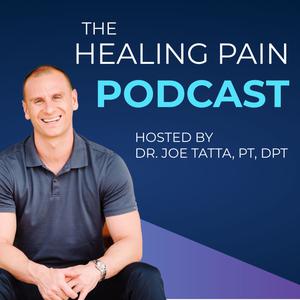
Dr. Joe Tatta | The Healing Pain Podcast
Joseph Tatta
The Healing Pain Podcast
- 37 minutes 46 secondsMemory and Pain: What Science Reveals About This Surprising Connection with Anna Waisman, PhD Student9 December 2024, 10:00 am
- 34 minutes 3 secondsHypnosis for Pain Relief with David Spiegel, MD
In this week's episode of the Pain Science Education Podcast, we speak with Dr. David Spiegel, a renowned expert in the field of hypnosis. Dr. Spiegel has decades of experience studying the applications of hypnosis in managing chronic pain, non-communicable diseases, and even cancer. Our conversation delved into the evolution of hypnosis from its early misconceptions to its current status as a scientifically-backed therapeutic tool for pain relief.
For show notes and additional resources, please visit integrativepainscienceinstitute.com
For CEU courses, please visit integrativepainscienceinstitute.com/course
Love the show? Subscribe, rate, and review. Here’s How »
14 November 2024, 4:48 pm - 1 hour 3 secondsThe New Science of Pain Science Education with Professor Lorimer Moseley, AO
In this episode, we speak with globally renowned pain researcher, Professor Lorimer Mosley. Lorimer is a clinician, scientist and educator whose investigates the role of the brain and the mind in chronic pain. He's a professor of clinical neurosciences and a foundation chair in physiotherapy at the University of South Australia. He has authored over 400 research articles and seven books on pain. He also leads a nonprofit organization called Pain Revolution, which you can learn more about by going to the website PainRevolution.org. On today's episode, we discuss new ways a clinician can deliver pain science education and how impactful this approach can be for people living with pain.
For show notes, articles, and additional resources, please visit integrativepainscienceinstitute.com
For CEU courses, please visit integrativepainscienceinstitute.com/course
Love the show? Subscribe, rate, and review. Here’s How »
29 July 2024, 9:00 am - 47 minutes 52 secondsHow Pain Resilience Can Help People Living With Chronic Pain with John (Drew) Sturgeon, PhD
On this week's episode of the Pain Science Education Podcast, we explore the concept of pain resilience with our expert guest Dr. Drew Sturgeon. Dr Sturgeorn is a fellowship-trained licensed clinical psychologist and clinical assistant professor at the University of Michigan School of Medicine Department of Anesthesiology. Dr. Sturgeon shares his journey into pain resilience, influenced by his mentor Dr. Alex Zoutra's work on adult resilience and adaptation in chronic pain. We discuss the growing interest in pain resilience and its distinction from pain vulnerability. Dr. Sturgeon emphasizes that resilience should be viewed as a process rather than a trait, highlighting the importance of sustainability, recovery, and growth in the face of chronic pain. We explore the idea that resilience involves actively pursuing meaningful goals despite pain, rather than merely tolerating it. Dr. Sturgeon explains how positive emotions, acceptance, and cognitive-behavioral strategies can enhance resilience by helping individuals reframe their pain experience and maintain functionality.
For show notes, articles, and additional resources, please visit integrativepainscienceinstitute.com
For CEU courses, please visit integrativepainscienceinstitute.com/course
Love the show? Subscribe, rate, and review. Here’s How »
15 July 2024, 9:00 am - 1 hour 22 minutesPsychedelic Medicine: Exploring Their Pain Management Potential with Maya Armstrong, MD
In this week's episode of the Pain Science Education Podcast, we delve into the intriguing and emerging field of psychedelic medicine for pain management. Our guest, Dr. Maya Armstrong, a board-certified physician in addiction and family medicine, shares her insights and research on this topic. Dr. Armstrong discusses her background and how her personal experience with chronic pain and her professional journey in addiction medicine led her to explore the potential of psychedelics in treating chronic pain. We explore the concept of pain as an emergent property of a complex system, emphasizing the importance of understanding pain beyond the traditional biopsychosocial model.
For show notes, articles, and additional resources, please visit integrativepainscienceinstitute.com
For CEU courses, please visit integrativepainscienceinstitute.com/course
Love the show? Subscribe, rate, and review. Here’s How »
1 July 2024, 9:00 am - 39 minutes 50 secondsTRE & Neurogenic Movement in Healing Trauma & Pain with Richmond Heath
This episode of the Pain Science Education Podcast delves into the interconnectedness between chronic pain and trauma, particularly focusing on the use of neurogenic movement to release trauma and alleviate chronic pain. Dr. Tatta introduces Richmond Heath, a physiotherapist from Australia with expertise in treating chronic pain and trauma through tension and trauma-releasing exercises (TRE). The discussion begins by highlighting the overlap between chronic pain and trauma, emphasizing that both are active processes generated by the brain and body. Physiotherapist Richmond Heath explains how trauma responses can manifest as immobility and tension in the body, leading to chronic pain over time. The conversation shifts to the concept of neurogenic movement, where the nervous system generates movement spontaneously without conscious control. This natural recovery response is explored as a tool for releasing tension and trauma stored in the body.
For show notes, articles, and additional resources, please visit integrativepainscienceinstitute.com
For CEU courses, please visit integrativepainscienceinstitute.com/course
Love the show? Subscribe, rate, and review. Here’s How »
5 June 2024, 9:30 am - 28 minutes 12 secondsWant Better Pain Outcomes? Simplify Pain Science and Develop Easy to Read Materials with Maria Garvey-Caruso, PT, DPT
Dr. Maria Garvey-Caruso is a physical therapist and author of the Pain Freedom Workbook. Her workbook is a concise and powerful tool that distills complex pain science education into a user-friendly format. The idea for the workbook stemmed from Dr. Garvey Carusos’s desire to simplify complex pain science and provide whole-person approach to pain care for her patients.
Throughout the episode, Dr. Garvey-Caruso shares insights into the development process of the workbook, highlighting the challenges of distilling vast amounts of information into a compact format. Overall, the episode sheds light on the innovative approach to pain science education through the Pain Freedom Workbook and underscores the importance of personalized and concise communication in the field of physical therapy and pain management.
For show notes, articles and additional resources, please visit integrativepainscienceinstitute.com
For CEU courses, please visit integrativepainscienceinstitute.com/course
Love the show? Subscribe, rate, and review. Here’s How »
22 May 2024, 3:10 pm - 52 minutes 18 secondsThe Integration of Pain Sciences into Physical Therapist Practice with Orit Hickman PT, DPT
Dr. Orit Hickman, owner of Pain Science Physical Therapy in Seattle, discusses implementing the latest pain science into clinical practice, focusing on the three types of pain: nociceptive, peripheral neuropathic, and nociplastic pain. Dr. Hickman shares her journey in integrating pain science into patient care and the importance of trauma-informed approaches. Tune in to learn how to evaluate and treat different types of pain and how to take a holistic approach to chronic pain.
For show notes, articles and additional resources, please visit integrativepainscienceinstitute.com
For CEU courses, please visit integrativepainscienceinstitute.com/course
Love the show? Subscribe, rate, and review. Here’s How »
6 May 2024, 8:00 am - 37 minutes 20 secondsThe Power of Psychologically Informed Physical Therapy with Tawny Kross, PT, DPT
In today’s episode, Dr. Tawny Kross, a physical therapist who integrates psychology into her practice, discusses the fusion of psychology and physical therapy, known as psychologically informed physical therapy, and its essential role in pain management. Dr. Kross shares insights from her work at the VA Medical Center and in her private practice, highlighting the importance of a whole person approach to pain care. We discuss the challenges and benefits of integrating cognitive behavioral techniques into physical therapy and improving pain literacy. Tune in to learn how to enhance pain care through a psychologically informed approach and gain valuable insights into the evolving landscape of physical therapy.
For show notes, articles and additional resources, please visit integrativepainscienceinstitute.com
For CEU courses, please visit integrativepainscienceinstitute.com/course
Love the show? Subscribe, rate, and review. Here’s How »
29 April 2024, 9:00 am - 34 minutes 56 secondsThe Physical Therapist's Role In Managing Psychological Distress And Suicide Prevention With Ryan McGrath
Physical therapists can and do play a role in promoting mental health wellness in patients, including managing psychological distress and even suicide prevention. In today's episode, Australian physiotherapist Ryan McGrath uncovers the ways that physical therapists can identify and address signs of psychological distress in their patients. He talks about yellow flags as well as red flags and how you can implement effective assessment and management strategies for things like pain, catastrophizing depression, and how to screen for suicide. Ryan’s PhD specifically looks at ways physiotherapists support clients with psychological distress. Whether you are a physical therapist, a physiotherapist, or another health professional, and if you're curious about the intersection of physical and mental health, this episode is for you.
For show notes, articles and additional resources, please visit integrativepainscienceinstitute.com
For CEU courses, please visit integrativepainscienceinstitute.com/course
Love the show? Subscribe, rate, and review. Here’s How »
10 April 2024, 7:00 am - 28 minutes 43 secondsTransforming Recovery Courts With Exercise To Support Substance Use Disorders With Walter Midkiff And The Honorable H. Lee Harrell
Dive into the transformative power of Recovery Courts as we explore the groundbreaking integration of exercise into addiction recovery programs in this episode. Dr. Joe Tatta welcomes Walter Midkiff and The Honorable H. Lee Harrell as they share their pioneering work in implementing Recovery Fitness as part of recovery court programs. Discover how exercise not only aids in substance use recovery but also enhances physical and mental well-being, fostering a supportive community and empowering individuals to overcome challenges and build resilience. Join us as we look into success stories, challenges, and the potential for expanding this innovative approach to fuel positive outcomes in recovery programs nationwide.
For show notes, articles and additional resources, please visit integrativepainscienceinstitute.com
For CEU courses, please visit integrativepainscienceinstitute.com/course
Love the show? Subscribe, rate, and review. Here’s How »
3 April 2024, 7:00 am - More Episodes? Get the App
Your feedback is valuable to us. Should you encounter any bugs, glitches, lack of functionality or other problems, please email us on [email protected] or join Moon.FM Telegram Group where you can talk directly to the dev team who are happy to answer any queries.
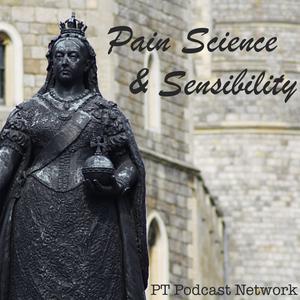 Pain Science and Sensibility
Pain Science and Sensibility
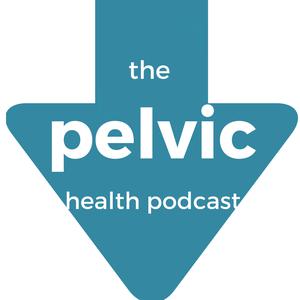 The Pelvic Health Podcast
The Pelvic Health Podcast
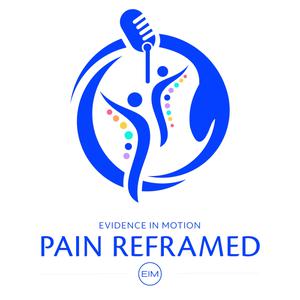 Pain Reframed
Pain Reframed
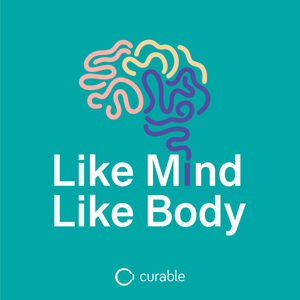 Like Mind, Like Body
Like Mind, Like Body
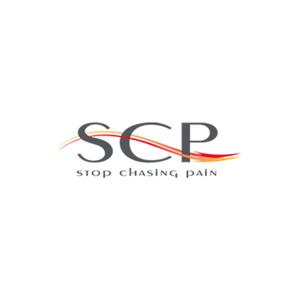 Perry Nickelston: Stop Chasing Pain
Perry Nickelston: Stop Chasing Pain
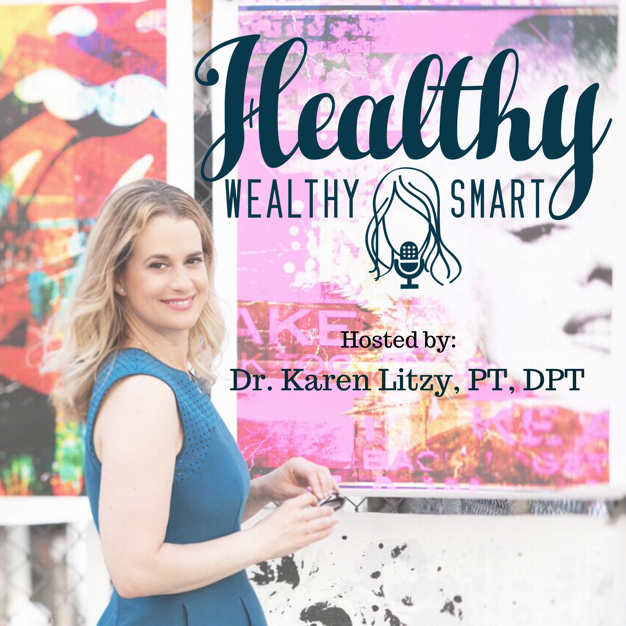 Healthy Wealthy & Smart
Healthy Wealthy & Smart